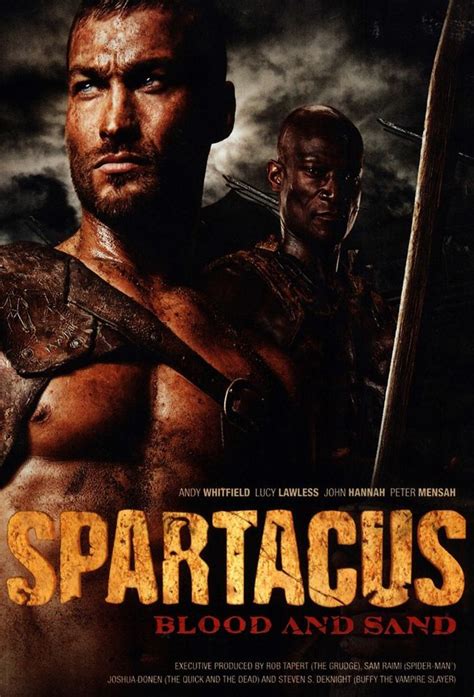Spartacus
directed by: Steven S. DeKnight, year: 2010
actors: Andy Whitfield, Liam McIntyre, John Hannah, Manu Bennett
actors: Andy Whitfield, Liam McIntyre, John Hannah, Manu Bennett

Description:
Spartacus is a historical drama television series that follows the life of Spartacus, a Thracian gladiator who leads a slave uprising against the Roman Republic. The series explores themes of power, loyalty, and betrayal as Spartacus fights for his freedom and seeks vengeance against those who have wronged him.Keywords:
Rebellion, Freedom, Gladiators, Oppression, VengeanceIs Spartacus movie a true story?
The movie "Spartacus," directed by Stanley Kubrick and released in 1960, is based on the historical figure Spartacus, a Thracian gladiator who led a major slave revolt against the Roman Republic from 73 to 71 BC. While the film takes creative liberties and dramatizes many events, the core story of Spartacus's rebellion is rooted in historical facts. The character and the uprising are well-documented, but the film embellishes certain elements for dramatic purposes.
Why was Spartacus banned?
The film "Spartacus," directed by Stanley Kubrick and released in 1960, faced bans and censorship in several countries due to its themes of rebellion, violence, and perceived anti-establishment sentiments. Some authorities were concerned about its portrayal of slavery and class struggle, which could incite unrest or challenge societal norms. Additionally, its explicit content for the time, including nudity and sexual themes, contributed to its controversial status in various regions. Over time, however, it has been recognized as a classic of cinema.
How many Oscars did Spartacus win?
"Spartacus," directed by Stanley Kubrick and released in 1960, won four Academy Awards. It received Oscars for Best Supporting Actor (Peter Ustinov), Best Art Direction, Best Costume Design, and Best Visual Effects. The film was nominated for a total of six Oscars, including Best Picture and Best Director, but did not win in those categories. "Spartacus" is renowned for its epic storytelling and significant impact on the historical drama genre.
Why did Stanley Kubrick disown Spartacus?
Stanley Kubrick disowned "Spartacus" primarily due to his lack of creative control during its production. Although he directed the film, he was not the final decision-maker on many aspects, which frustrated him. The screenplay underwent significant changes, and he felt that the collaborative nature of the project compromised his vision. Additionally, the studio's interference and the film's commercial approach contrasted with Kubrick's artistic ideals, leading him to distance himself from the film in terms of ownership and personal association.
Explore More Categories:
Supernatural Thriller Self Sufficiency Allegory Tribal Cosmic Battle Post Impressionism Prequel Adrenaline Family Disapproval Sustainability Oppenheimer Negotiation Outsider Political Intrigue Transgender Ghosts Boxing Drama Misunderstanding 1920s Resource Scarcity Character Driven Observational Summoning Art